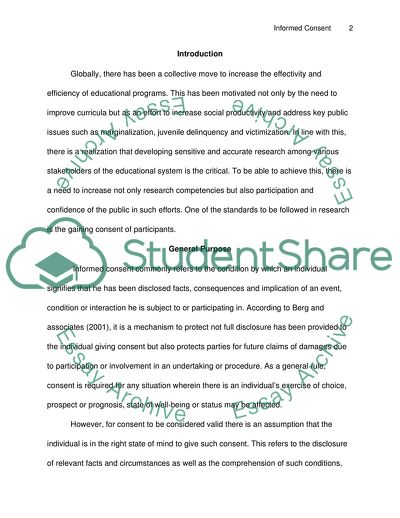Cite this document
(Informed Consent in Educational Research Settings: Definitions, Coursework Example | Topics and Well Written Essays - 1500 words, n.d.)
Informed Consent in Educational Research Settings: Definitions, Coursework Example | Topics and Well Written Essays - 1500 words. https://studentshare.org/humanitarian/1725915-informed-consent
Informed Consent in Educational Research Settings: Definitions, Coursework Example | Topics and Well Written Essays - 1500 words. https://studentshare.org/humanitarian/1725915-informed-consent
(Informed Consent in Educational Research Settings: Definitions, Coursework Example | Topics and Well Written Essays - 1500 Words)
Informed Consent in Educational Research Settings: Definitions, Coursework Example | Topics and Well Written Essays - 1500 Words. https://studentshare.org/humanitarian/1725915-informed-consent.
Informed Consent in Educational Research Settings: Definitions, Coursework Example | Topics and Well Written Essays - 1500 Words. https://studentshare.org/humanitarian/1725915-informed-consent.
“Informed Consent in Educational Research Settings: Definitions, Coursework Example | Topics and Well Written Essays - 1500 Words”. https://studentshare.org/humanitarian/1725915-informed-consent.


